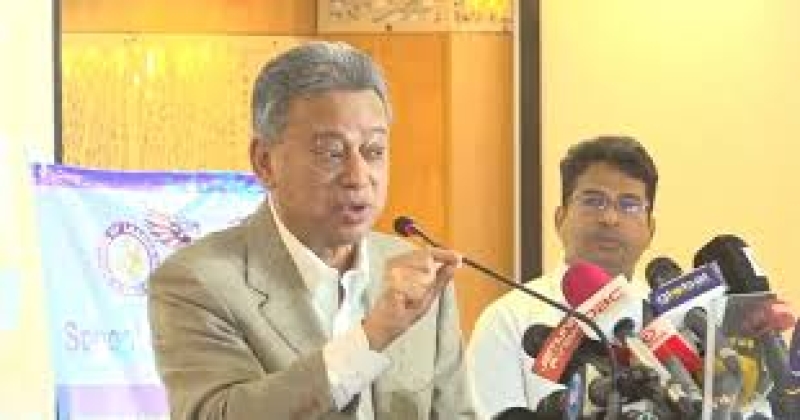- World Cup ticket prices to start at $60, may rise to $6,730 |
- Gazipur kitchen market fire under control after one hour |
- 10 MNC to enter bourse; Dhaka Stock Brookers laud BSEC |
- Dhaka bourse sees highest turnover in 12 months |
- Xi unveils vision for equitable global governance, rejects unilateralism |
Bangladesh Backsliding Due to Lack of Democracy: Khosru

BNP senior leader Amir Khosru Mahmud Chowdhury on Wednesday said Bangladesh is going downhill gradually as it could not move to democratic order even after one year of the mass uprising.
"One year is actually a long time. The country should have transitioned to a democratic order through the electoral process long ago. Because of this delay, Bangladesh is going downhill day by day," he said while speaking at a seminar.
Historically, Khosru said, countries that quickly established a democratic system through elections after a revolution or mass uprising tended to fare better.
In contrast, the BNP leader said, those countries that failed to do so often faced economic collapse, social unrest and in some cases, civil war.
"The countries that created trouble after their uprisings, making various demands and excuses, lost their democracy and destroyed their economies. These countries also experienced civil wars, and society became deeply divided. This is why elections must be held without further delay," he explained.
Khosru, a member of the BNP Standing Committee, said the situation is becoming increasingly difficult due to the absence of democracy and an elected government in Bangladesh.
He highlighted the growing gap between the interim government and people, pointing out that there is no bridge between the two.
"This gap is causing law enforcement agencies and government officials to fail in their duties. We are witnessing a collapse in law and order, lack of security, and a business environment that’s simply not viable. Factories are not receiving new investments because no one is willing to invest their time, money, or resources in this uncertainty,” the BNP leader said.
The seminar, titled ‘Post-July Political Thoughts: Which Direction Bangladesh is Walking?’ was organised by the School of Leadership USA (Bangladesh Chapter) at a city hotel.
Khosru warned that the country has already lost over a year without a proper democratic process, which is pushing Bangladesh deeper into political and economic instability.
Despite hosting international summits and discussions, he pointed out that the country has failed to attract real investment.
"At a recent summit, no new investments were made, even though many current investors attended. However, now, with the announcement of the election, we are starting to see some signs of hope. It is clear that investors are waiting for the elections to make their decisions. They are closely watching the situation and preparing to invest after the election," the BNP leader said.
Khosru urged all political parties to recognise the shift in the people's mindset following the mass uprising.
"After Sheikh Hasina's authoritarian rule ended, there has been a huge change in the mindset of the people of Bangladesh. Their expectations and aspirations are sky-high, but if we fail to understand and acknowledge these changes, political leaders and parties will have no future. If we don't recognise this, then the future of the party, mine, and the country itself will be at risk. No one’s future will be secure," he said.
The BNP leader stressed that political parties must stop claiming credit for the mass uprising as a tool for their future politics.
"If we continue to fight over credit for the movement, Bangladesh has no future. The credit belongs to the people, to those who made sacrifices for the country, not to individuals," he said.
Khosru mentioned that true freedom fighters returned to their lives and work after the Liberation War of 1971, reports UNB.
"Those who fought on the front lines returned to their roles. Teachers went back to their schools, and students returned to their colleges. We need to move beyond the idea of using the freedom struggle for personal gain. It’s time to focus on building the future of our country,” he said.

